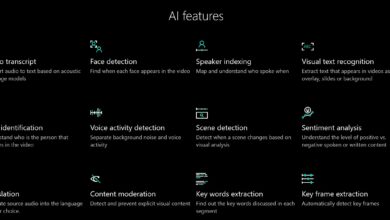
IBM Alchemy Sentiment Analysis
In this article I’m presenting a new member of IBM Watson family: Alchemy API platform.
IBM Alchemy API cloud platform makes it easy to create application that deeply understand the world’s conversations, reports and photos so you can align your business with customer preferences and intent. By Alchemy APIs is possible to transformer a vast numbers of web pages, tweets, emails and images into facts and knowledge on how people feel about your product, campaign, offer or service. AlchemyAPI offers 12 API functions as part of its text analysis service, each of which uses sophisticated natural language processing techniques to analyze your content and add high-level semantic information.
In this article I’m showing you the IBM Alchemy Sentiment Analysis. According to AlchemyAPI
Sentiment is the attitude, opinion or feeling toward something, such as a person, organization, product or location. AlchemyAPI’s sentiment analysis API provides easy-to-use mechanisms to identify the positive or negative sentiment within any document or webpage.
The sentiment analysis API is capable of computing document-level sentiment, sentiment for user-specified targets, entity-level sentiment, quotation-level sentiment, directional-sentiment and keyword-level sentiment.
The sentiment analysis algorithm looks for words that carry a positive or negative connotation then figures out which person, place or thing they are referring to, for example this smart-phone is good versus this smart-phone is not good and modifiers for example this smart-phone is good versus this smart-phone is really good.
The sentiment analysis API works on documents large and small, including news articles, blog posts, product reviews, comments and Tweets.
I used Sentiment API to analyze the text content from an URL. You can test your favorite news articles, blog posts, product reviews, comments and Tweets by this simple application.
Here an example to understand how it works. I analyzed the worst video-game in 2015, according to critics, the Rugby World Cup 2015. Here a piece of the article used for my test:

As you can read the Rugby 15 has been described as: a lot of frustration, game of luck, overall lack of control. The result is a strong negative sentiment:

vice-versa for one of the funniest video games ever made The Secret of Monkey Island the result is very different. Here a piece of the article used for my test:

As you can read the Monkey Island has been described as: truly excellent, easily the best so the result is a positive sentiment:

The first thought that comes to mind after used the IBM Alchemy Sentiment Analysis is: what’s going to happen to Search Engine ?
Can be a sentiment a factor in the search engine ranking factors ?
For example, how does Facebook decide what shows up in your news feed ? it could be based on the post’s sentiment ! Facebook could favor the posts with positive sentiments. As you known Facebook already filters of user’s Newsfeeds. What I and most others have understood is that there is a gap between the raw, unfiltered Newsfeed, and the feed produced through engineering and machine learning.
Can the the Sentiment Analysis breaks old search Google habits ? SEO is not dead, it is just changing.
Test yourself the IBM Alchemy Sentiment Analysis here.




2 Comments